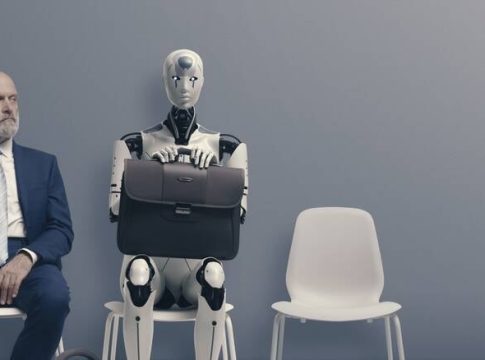Canva Embraces AI in Developer Hiring Process
The New Era of Coding Interviews
In a bold move signaling the growing integration of artificial intelligence in software development, Canva, the popular graphic design platform, has updated its hiring practices for developer roles. Founded in 2012, Canva has evolved from a simple design tool to a formidable competitor against giants like Adobe. The company boasts over 220 million monthly users and has recently reported $3 billion in annual recurring revenue.
Previously, Canva’s recruitment focused on pure computer science fundamentals, where candidates were expected to write code solely based on their intellectual capabilities. However, this traditional approach is now outdated, as the company recognizes that many engineers routinely utilize AI coding assistants like Copilot and Claude in their daily tasks.
Adapting to Real-World Practices
Simon Newton, Canva’s head of platforms, articulated the rationale behind this shift. “Nearly half of our frontend and backend engineers use AI coding tools regularly,” he noted, emphasizing that understanding these tools is vital for maintaining productivity and competitiveness in today’s fast-paced tech landscape. He admitted that the old interview format often failed to reflect how candidates would perform in actual work scenarios.
Rather than resisting the trend of AI use, Canva aims to embrace it. Their newly designed interview process encourages candidates to leverage AI tools not just for coding, but for complex problem-solving. While some existing engineers voiced concerns over a perceived decline in rigorous technical assessment—labeling it "vibe-coding"—Canva ensures that foundational computer science skills remain part of the evaluation, albeit in more innovative ways.
Skills Beyond the Code
In the evolving interview format, candidates must navigate challenges that demand both creative and logical approaches. They are assessed on various competencies, including:
- Effective Use of AI: Understanding when and how to leverage AI tools appropriately.
- Problem Breakdown: The ability to dissect complex, ambiguous requirements.
- Decision-Making: Making sound technical choices while using AI as an assets.
- Quality Assurance: Identifying and rectifying issues in AI-generated code.
Successful candidates proved they could strategically utilize AI to enhance their coding rather than relying solely on its output.
The Future of Developer Skills
Newton observed that candidates with limited AI experience often struggled, not due to a lack of coding skill but rather an inability to guide AI effectively. In a landscape increasingly influenced by AI capabilities, adaptability and nuanced judgment are becoming essential traits for future engineers.
As Canva piloted this new recruitment approach, early feedback has been promising. It fosters a more engaging experience for both interviewers and candidates while potentially improving performance prediction. Reflecting on this, Newton stated, “The future belongs to engineers who can seamlessly blend human creativity and judgment with AI capabilities.”
In summary, Canva’s shift in its hiring process underscores a significant trend in tech: as AI tools become ubiquitous, the skills needed to thrive in programming are evolving. Those aspiring to join innovative firms must now demonstrate a thoughtful integration of AI in their workflow, marking a pivotal transition in how we assess technical talents.

Writes about personal finance, side hustles, gadgets, and tech innovation.
Bio: Priya specializes in making complex financial and tech topics easy to digest, with experience in fintech and consumer reviews.

